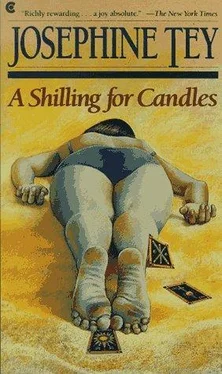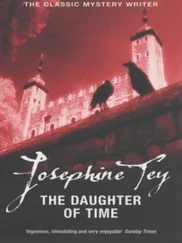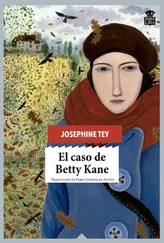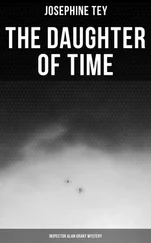Josephine Tey - A Shilling for Candles
Здесь есть возможность читать онлайн «Josephine Tey - A Shilling for Candles» весь текст электронной книги совершенно бесплатно (целиком полную версию без сокращений). В некоторых случаях можно слушать аудио, скачать через торрент в формате fb2 и присутствует краткое содержание. Год выпуска: 1936, Жанр: Классический детектив, на английском языке. Описание произведения, (предисловие) а так же отзывы посетителей доступны на портале библиотеки ЛибКат.
- Название:A Shilling for Candles
- Автор:
- Жанр:
- Год:1936
- ISBN:нет данных
- Рейтинг книги:4 / 5. Голосов: 1
-
Избранное:Добавить в избранное
- Отзывы:
-
Ваша оценка:
- 80
- 1
- 2
- 3
- 4
- 5
A Shilling for Candles: краткое содержание, описание и аннотация
Предлагаем к чтению аннотацию, описание, краткое содержание или предисловие (зависит от того, что написал сам автор книги «A Shilling for Candles»). Если вы не нашли необходимую информацию о книге — напишите в комментариях, мы постараемся отыскать её.
A Shilling for Candles — читать онлайн бесплатно полную книгу (весь текст) целиком
Ниже представлен текст книги, разбитый по страницам. Система сохранения места последней прочитанной страницы, позволяет с удобством читать онлайн бесплатно книгу «A Shilling for Candles», без необходимости каждый раз заново искать на чём Вы остановились. Поставьте закладку, и сможете в любой момент перейти на страницу, на которой закончили чтение.
Интервал:
Закладка:
"Got any theories yourself?"
"Well, sir, if you don't mind my saying so, you've passed over the person with the obvious motive."
"Who?"
"Jason Harmer. What was he doing snooping around at half past eight of a morning?"
"He'd come over from Sandwich. Spent the night at the pub there."
"So he said. Did the County people verify that?"
Grant consulted his notes.
"Perhaps they haven't. The statement was volunteered before they found the button, and so they weren't suspicious. And since then everyone has concentrated on Tisdall."
"Plenty of motive, Harmer has. Clay walks out on him, and he runs her to earth in a country cottage, alone with a man."
"Yes, very plausible. Well, you can add Harmer to your list of chores. Find out about his wardrobe. There's an SOS out for a discarded coat. I hope it brings in something. A coat's a much easier clue than a button. Tisdall, by the way, says he sold his wardrobe complete (except for his evening things) to a man called — appropriately enough — Togger, but doesn't know where his place of business is. Is that the chap who used to be in Craven Road?"
"Yes, sir."
"Where is he now?"
"Westbourne Grove. The far end."
"Thanks. I don't doubt Tisdall's statement. But there's just a chance there's the duplicate of that button on another coat. It might lead us to something." He got to his feet. "Well, on with the job of making bricks without straw! And talking of that Israelitish occupation, here's a grand sample of it to flavor your third cup." He pulled from his pocket the afternoon edition of the Sentinel , the Clarion's evening representative, and laid it, with its staring headlines, "Was Clay's Death an Accident?" upward, by Williams's plate.
"Jammy Hopkins!" Williams said, with feeling, and flung sugar violently into his black tea.
Chapter 6
Marta Hallard, as befitted a leading lady who alternated between the St. James's and the Haymarket, lived in the kind of apartment block which has deep carpet on the stairs and a cloistered hush in the corridors. Grant, climbing the stairs with weary feet, appreciated the carpet even while his other self wondered about the vacuum cleaning. The dim pink square of the lift had fled upward as he came through the revolving door, and rather than wait for its return he was walking the two flights. The commissionaire had said that Marta was at home: had arrived about eleven from the theater with several people. Grant regretted the people, but was determined that this day was not going to end without his obtaining some light on Christine Clay and her entourage. Barker had failed to find the lawyer, Erskine, for him; his man said he was suffering from the shock of the last three days and had gone into the country over Sunday; address unknown. ("Ever heard of a lawyer suffering from shock?" Barker had said.) So the matter which most interested Grant — the contents of Christine Clay's will — must wait until Monday. At the Yard he had read through the dossier — still, of course, incomplete — which they had gathered together in the last twelve hours. In all the five sheets of it Grant found only two things remarkable.
Her real name, it appeared, was Christina Gotobed.
And she had had no lovers.
No public ones, that is. Even in those crucial years when the little Broadway hoofer was blossoming into the song-and-dance star, she seemed to have had no patron. Nor yet when, tiring of song-and-dance pictures, her ambition had reached out to drama; her rocket had shot to the stars under its own power, it would seem. This could only mean one of two things: that she had remained virgin until her marriage at twenty-six (a state of affairs which Grant, who had a larger experience of life than of psychology textbooks, found quite possible) or that her favor was given only when her heart (or her fancy, according to whether you are sentimentalist or cynic) was touched. Four years ago Lord Edward Champneis (pronounced Chins), old Bude's fifth son, had met her in Hollywood, and in a month they were married. She was at that time shooting her first straight film, and it was generally agreed that she had "done well for herself" in her marriage. Two years later Lord Edward was "Christine Clay's husband."
He took it gracefully, it was reported; and the marriage had lasted. It had become a casual affair of mutual friendliness; partly owing to the demands of time and space that her profession made on Christine, and partly to the fact that Edward Champneis's main interest in life (after Christine) was to invade the uncomfortable interiors of ill-governed and inaccessible countries and then to write books about them. During the book-writing solstice he and Christine lived more or less under one roof, and were apparently very happy. The fact that Edward, although a fifth son, had nevertheless a large fortune of his own, inherited from his mother's brother (Bremer, the leather king), had done much to save the marriage from its most obvious dangers. And Edward's delighted pride in his wife did the rest.
Now, where in that life, as shown in the dossier, did a murder fit in? Grant asked himself, toiling up the padded stairs. Harmer? He had been her constant companion for the three months she had been in England. True, they had work in common (producers still liked to insert a song somewhere in the plot of Christine's films: the public felt cheated if they did not hear her sing), but the world which amuses itself had no doubt of their relations, whatever their colleagues thought. Or Tisdall? An ill-balanced boy, picked up in a moment of waywardness or generosity, at a time when he was reckless and without direction.
Well, he himself would find out more about Tisdall. Meanwhile he would find out about the Harmers of her life.
As he came to the top of the second flight, he heard the gentle sound of the lift closing, and he turned the corner to find Jammy Hopkins just taking his thumb from the bell push.
"Well, well," said Jammy, "it's a party!"
"I hope you have an invitation."
"I hope you have a warrant. People shriek for their lawyer nowadays at the very sight of a policeman on the mat. Look, Inspector," he said hurriedly in a different voice, "let's not spoil each other's game. We both thought of Marta. Let's pool results. No need for crowding."
From which Grant deduced that Hopkins was doubtful of his reception. He followed Grant into the little hall without giving his name, and Grant, while appreciating the ingenuity, rebelled at providing a cloak for the press.
"This gentleman is, I believe, from the Clarion ," he said to the servant who had turned away to announce them.
"Oh!" she said, turning back and eyeing Hopkins without favor. "Miss Hallard is always very tired at night, and she has some friends with her at the moment —»
But luck saved Hopkins from any necessity for coercion. The double doors to the living room stood open, and from the room beyond came welcome in high excited tones.
"Mr. Hopkins! How charming! Now you can tell us what all these midday editions were talking about. I didn't know you knew Mr. Hopkins, Marta darling!"
"Who'd have thought I'd ever be glad to hear that voice!" Jammy murmured to Grant as he moved forward to greet the speaker, and Grant turned to meet Marta Hallard, who had come from the room into the hall.
"Alan Grant!" she said, smiling at him. "Is this business or pleasure?"
"Both. Do me a favor. Don't tell these people who I am. Just talk as you were talking before I came. And if you can get rid of them fairly soon, I'd like to talk to you alone for a little."
"I'd do a lot more than that for you. Every time I tie these around my neck," she indicated a rope of pearls, "I remember you."
This was not because Grant had given her the pearls but because he had once recovered them for her.
Читать дальшеИнтервал:
Закладка:
Похожие книги на «A Shilling for Candles»
Представляем Вашему вниманию похожие книги на «A Shilling for Candles» списком для выбора. Мы отобрали схожую по названию и смыслу литературу в надежде предоставить читателям больше вариантов отыскать новые, интересные, ещё непрочитанные произведения.
Обсуждение, отзывы о книге «A Shilling for Candles» и просто собственные мнения читателей. Оставьте ваши комментарии, напишите, что Вы думаете о произведении, его смысле или главных героях. Укажите что конкретно понравилось, а что нет, и почему Вы так считаете.












